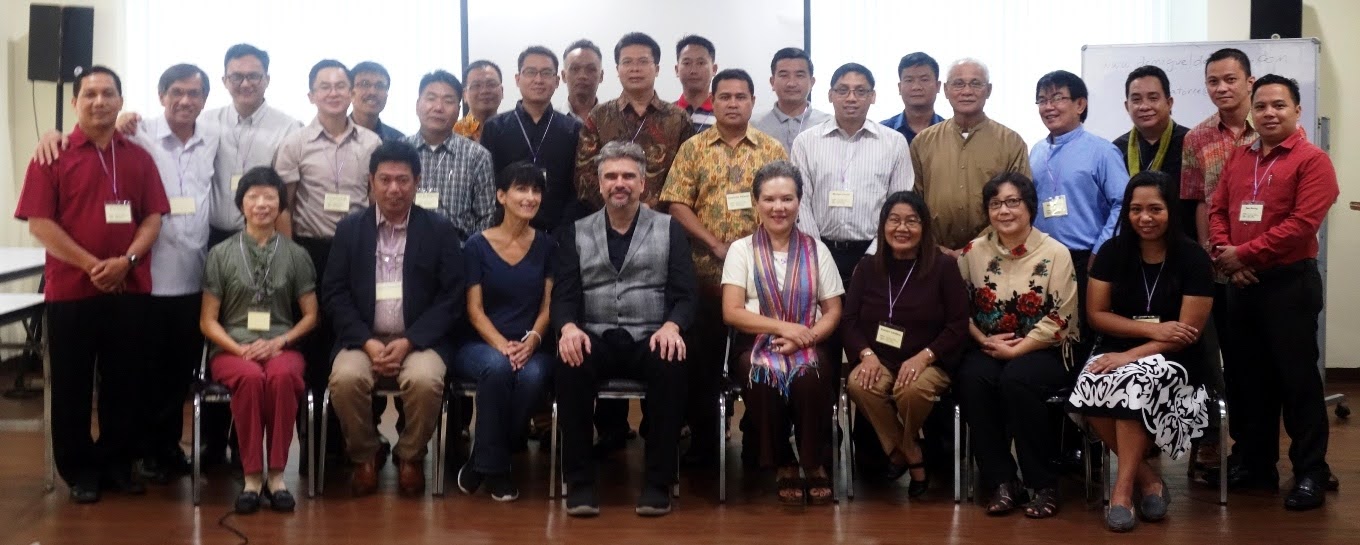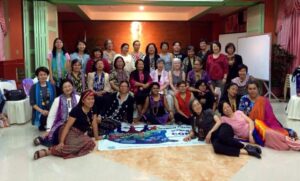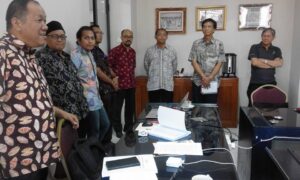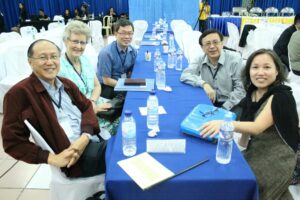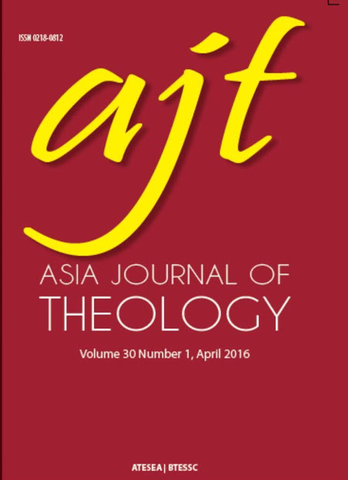Christian ethics faculty convene for the 2018 Teachers’ Academy
Twenty-four (24) lecturers in Christian Ethics from Indonesia, Myanmar, Malaysia and the Philippines gathered for the 2018 Teachers’ Academy in Bangkok Christian Guest House, Thailand on October 22-26, 2018 purposely to be given updates on the current issues in social Christian ethics and outcome-based education.
Dr. Miguel de la Torre, Professor of Social Ethics and Latinx Studies at Iliff School of Theology in Denver, Colorado, was the resource speaker on Ethics. He discussed the topics, “Embracing Hopelessness: Doing Ethics from the U.S. Margins” and “Why They Come?: Rethinking the Virtue of Hospitality.”
Dr. de la Torre stressed the importance of reading the Bible through the lenses of the marginalized. This is also true for the study of ethics where an Asian and non-European should endeavour to create ways in order to transcend even the colonizing language of European ethics. He suggested that each culture and group should discover the divine in their own inherited culture, faith, and symbols and how each group should enrich one another.
He shared his stories about immigration, one of the major crises facing the Latinx community in the US. In his presentation, he argued that hopelessness is not a negative word. Rather, it makes one resilient and strong enough to resist against the system that oppresses and creates hopeless situations. As such, he believes that ethics is not universal but rather contextual. Asian ethics and Latino ethics come from two different contexts. He challenged the participants to think of a contextualized ethics in addressing the issues of “peaceful co-existence.”
Dr. Greg Tabios Pawilen, Associate Professor, College of Human Ecology, University of the Philippines, Los Banos, led the two-day lecture-workshops on the topics, outcome-based education, outcomes-based assessment and designing syllabi.
In their respective groups, the participants were engaged in doing exercises on how to re-align their courses in ethics and the degree programs with the institution’s vision and mission.
Overall, the participants agreed that the Academy was very relevant and useful in teaching and doing ethics contextually.
In order to strengthen the group of ethics lecturers, they suggested that a forum for the study of Christian Ethics and practices of Global Ethics in Asia be organized.

